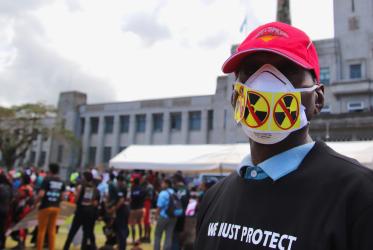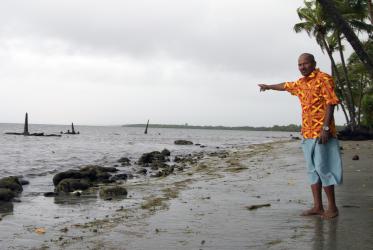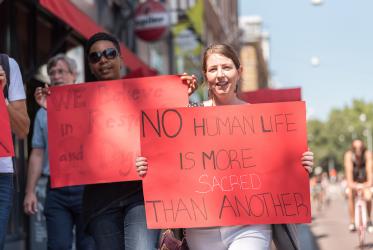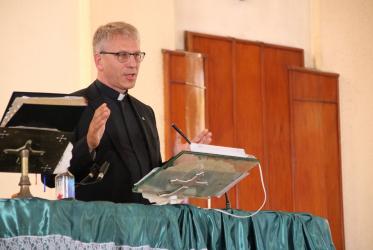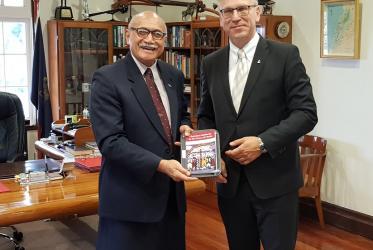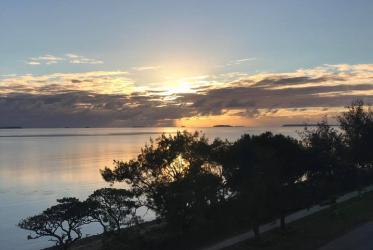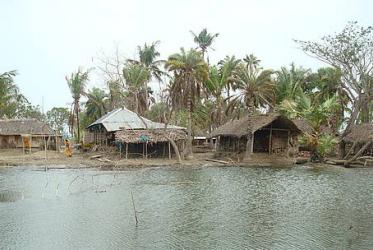Displaying 1 - 18 of 18
29 August 2023
Pacific Theological College publishes “A COVID-19 Wellbeing Statement”
03 September 2021
Churches should use their voice on climate change
26 February 2020
WCC executive committee tackles public issues
07 November 2018
WCC supports UN petition from French Polynesia
07 November 2018
WCC greets new leadership of ACT Alliance
31 October 2018
In Zambia, foreign investors complicate “economy of life”
06 September 2017
GEM School: integrating theology and economics
05 September 2017
In Fiji, “time to go beyond the reef”
14 August 2017
Hopes shared in Tonga, where dawn starts first
06 August 2017
Hundreds of pilgrims making way to UN Climate Change Conference
27 October 2015
Indigenous faith leaders reflect on resilience and climate change
23 September 2014
